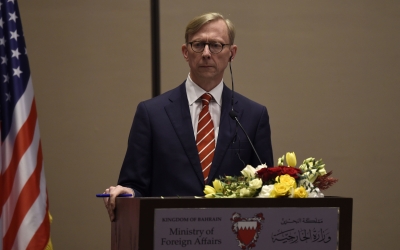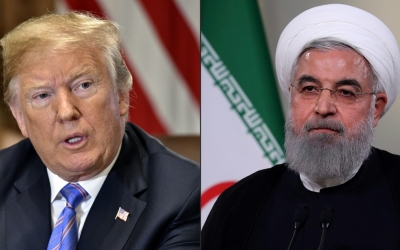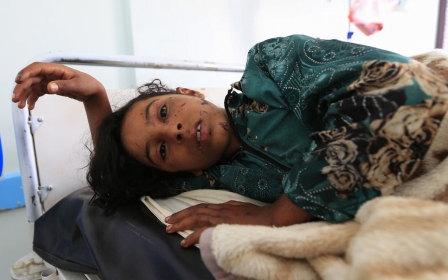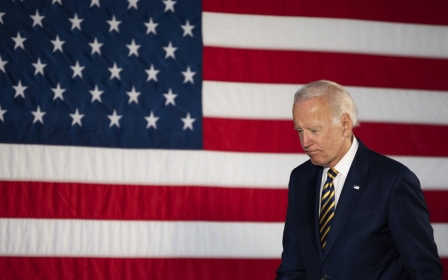Iran warns of 'consequences' over US arms embargo push
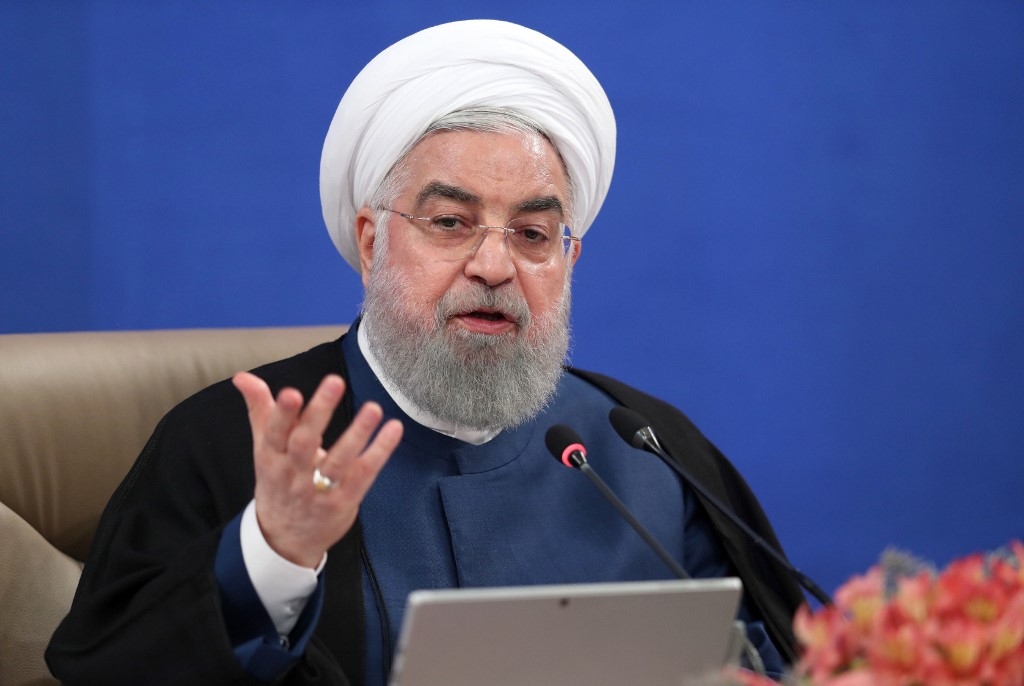
Iran issued a warning to the United States after it circulated a revised resolution that would indefinitely extend a UN arms embargo on Tehran that is set to expire in October.
Iranian President Hassan Rouhani said there would be "consequences" if the UN Security Council were to back the new US resolution.
"We have great hopes that America will fail," Rouhani told a televised meeting of his cabinet. "We have great hopes that America will realise its failure and see its isolation."
US Ambassador to the UN Kelly Craft said the new draft "takes council views into account and simply does what everyone knows should be done - extend the arms embargo to prevent Iran from freely buying and selling conventional weapons".
"It is only common sense that the world's number one state sponsor of terror not be given the means of unleashing even greater harm on the world," Craft said in a statement.
Rouhani said on Wednesday that the move showed the US was "forced to retreat" from its original resolution, and predicted its new arms embargo push would fail at the Security Council.
'US was forced to retreat'
The revised draft, obtained by the Associated Press, is just four paragraphs and replaces the original seven-page, 35-paragraph draft circulated in June.
The original draft included several provisions to which some diplomats objected for going beyond the extension of the arms embargo.
One provision in the original resolution would have authorised all UN member states to inspect cargo either originating in or destined for Iran when entering or transiting through their territory at airports, seaports, or free trade zones, if the member state had "reasonable grounds to believe the cargo" contained banned items.
'We have great hopes that America will realise its failure and see its isolation'
- Hassan Rouhani, Iranian president
The new draft, which seeks to gain more support in the 15-member Security Council where veto-wielding Russia and China have already voiced strong opposition, states the arms embargo "shall continue to apply until the Security Council decides otherwise". It says full implementation of the arms embargo "is essential to the maintenance of international peace and security".
Iran's UN Ambassador Majid Takht Ravanchi said Washington's new proposal was a sign that the "US was forced to retreat from its draft resolution ... and proposed another version".
"The new draft is similar - in its NATURE and GOAL - to the previous," he tweeted. "Confident that the Council will - again - reject this move."
The United Nations banned Iran from buying major foreign weapon systems in 2010 amid tensions over its nuclear programme.
Russia and China likely to veto
The US push to make the arms embargo permanent follows President Donald Trump's 2018 withdrawal from the 2015 nuclear deal between six major powers and Iran, aimed at preventing Iranian development of nuclear weapons.
Tehran has repeatedly insisted it has no interest in or intention to produce a nuclear bomb.
The 2015 UN Security Council resolution endorsing the nuclear deal includes a provision lifting the arms embargo on Iran on 18 October.
The foreign ministers of Russia and China, in separate letters to UN Secretary-General Antonio Guterres and the Security Council last month, were sharply critical of the US effort to indefinitely extend the arms embargo.
They gave every indication they would veto any such resolution if it got the minimum nine "yes" votes in the 15-member council, which appears unlikely.
If the resolution is defeated, US Secretary of State Mike Pompeo suggested Washington would invoke the "snapback" mechanism in the 2015 nuclear deal that would restore all UN sanctions on Iran.
Iranian Foreign Minister Mohammad Javad Zarif slammed Washington's plans and said on Wednesday that the US would "not receive enough votes for their proposal".
"Since the United States left the 2015 Iranian nuclear deal, the US's three European allies have also made it clear that Washington cannot trigger the dispute resolution mechanism that could lead to the restoration of UN to ban on Iran," Zarif said, according to the official IRNA news agency.
"The US draft resolution pertaining to the UN arms embargo is illegal, and the Americans will not receive enough votes for their proposal on Iran in the UN Security Council's upcoming meeting."
Ending arms ban 'inseparable' from nuclear deal
Diplomats from several countries have expressed serious concerns that extending the arms embargo would lead to Iran's complete withdrawal from the deal and accelerate its alleged pursuit of nuclear weapons.
The US argues Iran has not been cooperating with the International Atomic Energy Agency for a year and has been moving weapons to proxy groups in the Middle East, despite the embargo.
If the embargo were lifted, the US Defense Intelligence Agency predicted in 2019 that Iran would likely try to purchase Russian Su-30 fighter jets, Yak-130 trainer aircraft, and T-90 tanks.
Tehran may also try to buy Russia's S-400 anti-aircraft missile system and its Bastian coastal defence missile system, the agency said.
Iran has strongly criticised the Trump administration's efforts to use its past membership in the nuclear deal as a tool to influence the Security Council's decision on the arms embargo.
Middle East Eye delivers independent and unrivalled coverage and analysis of the Middle East, North Africa and beyond. To learn more about republishing this content and the associated fees, please fill out this form. More about MEE can be found here.


